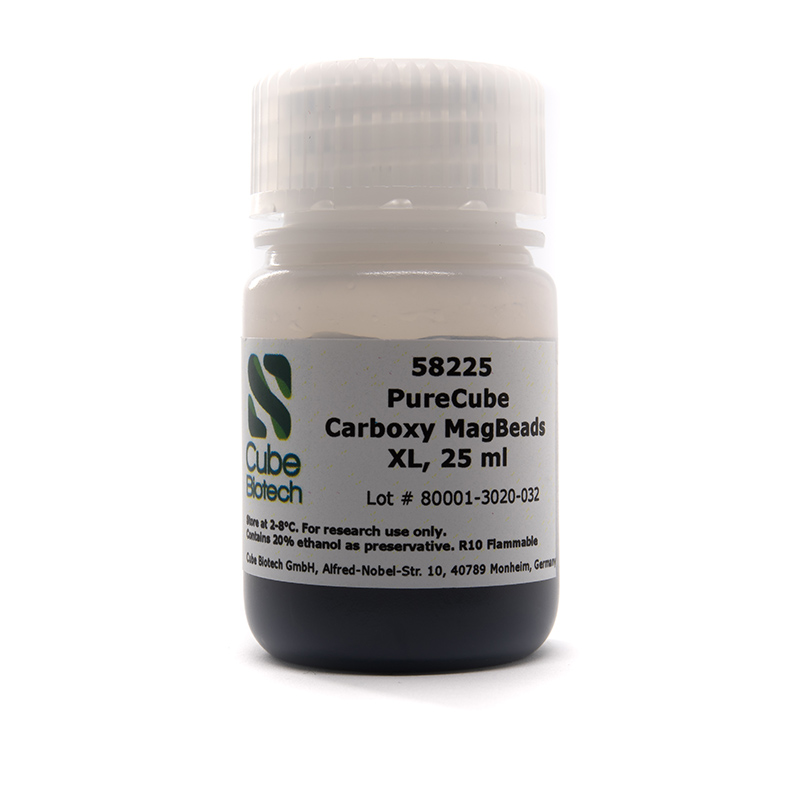PureCube Carboxy MagBeads XL
Order number: 58201
Description
PureCube Amine Carboxy Agarose MagBeads your best option to couple biomolecules that carry free-standing Amine (NH2) groups. The resulting peptide bond between the Carboxy Magbeads and your biomolecule of interest is stable so that the bead can be used for other applications afterward. Our PureCube Carboxy MagBeads are also available as agarose resin in case you prefer this purification method, or as normal sized MagBeads if you like to have more surface area on your beads.
| Feature | |
|---|---|
| Usage | Coupling biomolecules to active Carboxy Groups |
| Specificity | Exposed Amine (NH2) groups on biomolecule |
| Amine group density | higher than 15 µmol/ml |
| Bead Ligand | Chemically active Carboxy groups |
| Bead size | 90 μm |
| Filling quantity | Delivered as a 25 % suspension |
| Matrix | 6% cross-linked agarose |
| Short Term storage | In equilibration buffer (see protocol) |
| Long Term storage | 100 mM sodium hydrogen carbonate, 0.02% sodium azide, pH 7.5 at 4 °C or 20 mM sodium acetate, 20% ethanol, pH 6.5 at 4 °C |
| Shelf life | If properly stored - 3 years upon delivery, unopened |
| Chemical Structure |  |
FAQ
Can I get the datasheet for the Carboxy MagBeads XL?
What can I do with these beads?
The beads carry reactive Carboxy groups on their surface. These can be used to bind all sorts of biomolecules if they carry free amine (NH2) groups. The subsequent use of the beads depends on what biomolecule was coupled.
How does the coupling work?
How long can I store the Carboxy Activated Beads?
Unlike some other activated beads, carboxy activated beads have a long shelf life. The half-life of the carboxy beads is around 3 years of properly stored.



